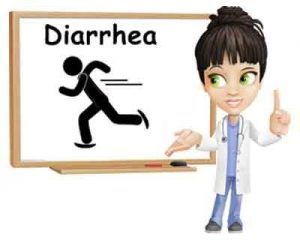- Home
- Editorial
- News
- Practice Guidelines
- Anesthesiology Guidelines
- Cancer Guidelines
- Cardiac Sciences Guidelines
- Critical Care Guidelines
- Dentistry Guidelines
- Dermatology Guidelines
- Diabetes and Endo Guidelines
- Diagnostics Guidelines
- ENT Guidelines
- Featured Practice Guidelines
- Gastroenterology Guidelines
- Geriatrics Guidelines
- Medicine Guidelines
- Nephrology Guidelines
- Neurosciences Guidelines
- Obs and Gynae Guidelines
- Ophthalmology Guidelines
- Orthopaedics Guidelines
- Paediatrics Guidelines
- Psychiatry Guidelines
- Pulmonology Guidelines
- Radiology Guidelines
- Surgery Guidelines
- Urology Guidelines
Saliva may be new preventive therapy for traveler's diarrhea

Traveler's diarrhea is caused by enterotoxigenic Escherichia coli (ETEC) and affects more than one billion cases each year.It is a cause of not only inconvenience but in some cases it can be deadly. It produces watery diarrhea, which can cause life-threatening dehydration in infants or other vulnerable populations in endemic countries.Researchers from Boston University School of Medicine (BUSM) and collaborators have identified a protein in saliva (histatin-5) which protects the body from traveler's diarrhea. This may lead to the development of new preventive therapies for the disease in coming times.The study has been published in the Journal of Infectious Diseases.
Researchers from Boston University School of Medicine (BUSM) and collaborators exposed miniature human small intestines that they were able to grow in a dish (organoids) to the bacteria ETEC in the presence and absence of the protein histatin-5. When examined under the microscope, significantly fewer bacteria were able to attach to the tissue in the presence of histatin-5.
"We found that the protein histatin-5 present in human saliva stiffens the pili of ETEC, preventing the bacteria from effectively adhering to the small intestine," explained corresponding author Esther Bullitt, PhD, associate professor of physiology and biophysics at BUSM. "If they can't attach, they simply can't cause disease."
Prior to this study, it was not known that saliva could play such a large role in protecting the body from gut infections. According to the researchers, this initial line of defense in the mouth likely explains why it takes such a large number of ETEC to infect a human. They also suggest that histatin-5 might be manufactured as a dissolvable powder and used to prevent traveler's diarrhea in the future.
This new finding opens up the possibility that other salivary proteins might exist which protect against many other diseases, including infectious gastritis, food poisoning or even pneumonia. "We believe that our data represent the first example of a new paradigm in innate immunity: the contributions of salivary components to preventing infection. This research opens an untapped avenue for prevention of enteric infectious diseases through the targeted use of naturally occurring components of saliva."

Disclaimer: This site is primarily intended for healthcare professionals. Any content/information on this website does not replace the advice of medical and/or health professionals and should not be construed as medical/diagnostic advice/endorsement or prescription. Use of this site is subject to our terms of use, privacy policy, advertisement policy. © 2020 Minerva Medical Treatment Pvt Ltd